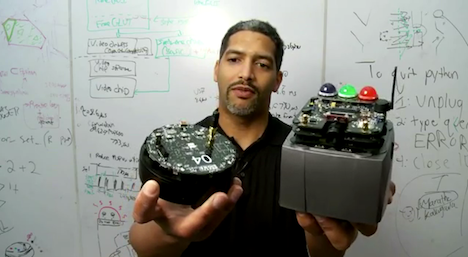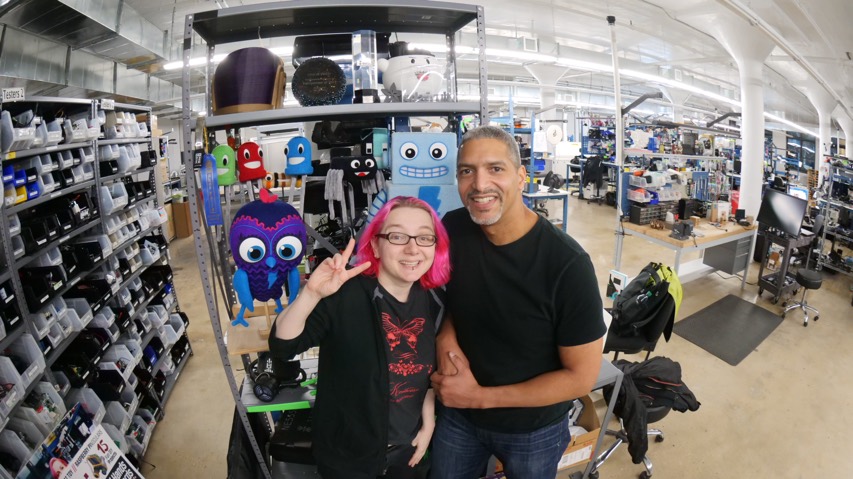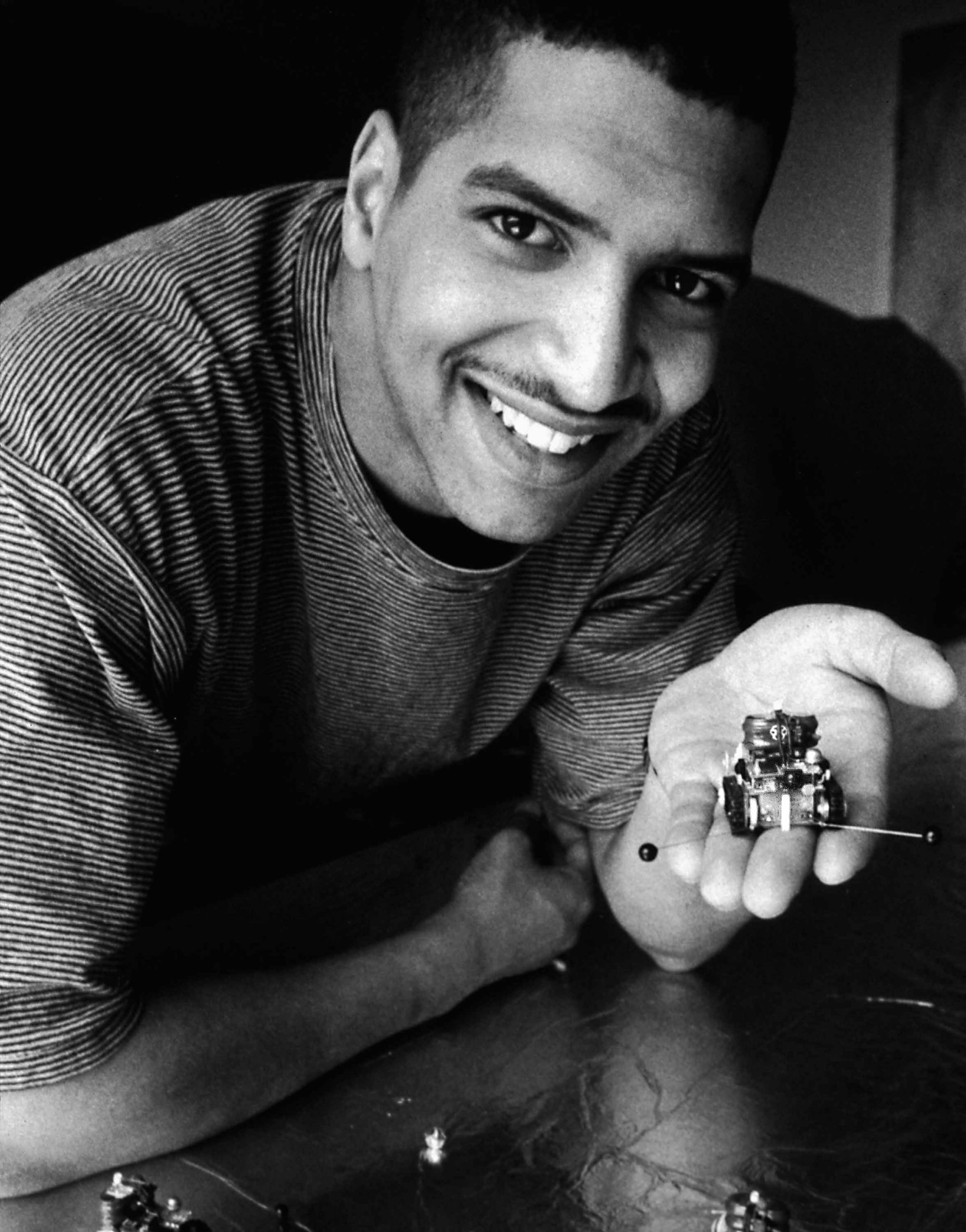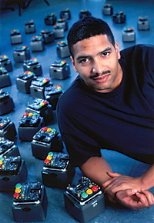Biography
As a child, James McLurkin was constantly building with LEGO bricks, cardboard boxes, or any other materials he could access. Today, he continues this tradition using Mother Nature as a model, researching and developing algorithms and techniques for constructing and programming large swarms of autonomous robots.
James McLurkin is a Sr. Hardware Engineer at Google and an Adjunct Professor in the Department of Computer Science at Rice University. He researches distributed algorithms for multi-agent systems, which is software that produces complex group behaviors from the interactions of many simple individuals. These ideas are not new: ants, bees, wasps, and termites have been running this type of software for 120 million years. In order to test these ideas, he has lead research teams using some of the largest groups of robots in the world. Previously, McLurkin was a Lead Research Scientist at iRobot, and was the 2003 recipient of the Lemelson-MIT student prize for invention. He holds a S.B. in Electrical Engineering with a Minor in Mechanical Engineering from M.I.T., a M.S. in Electrical Engineering from University of California, Berkeley, and a S.M. and Ph.D. in Computer Science from M.I.T.
As an independent consultant, McLurkin has advised many mechanical and engineering projects for clients such as Walt Disney Imagineering, Sensable Technologies, and MicroDisplay Corp. As a speaker for organizations such as Interval Research, Inc., Dartmouth College, LEGO Advanced Design Center, and the Association of Science-Technology Centers, he is dedicated to illustrating the fun and excitement in science and engineering.
In 2003, McLurkin received the Lemelson-MIT Student Prize, which is awarded to burgeoning MIT student inventors. Also in 2003, he was recognized by Time magazine as one of five leading robotics engineers in their “Rise of the Machines” feature, and by Black Enterprise magazine as a “Best and Brightest Under 40.” In 2002, he was featured in the Lemelson Center’s nationwide interactive traveling exhibit, “Invention at Play,” which began at the Smithsonian’s National Museum of American History in Washington, DC.
McLurkin is a native of Baldwin, New York, where his parents were very encouraging and began cultivating his inventiveness and engineering prowess at a young age. From Lego bricks to BMX bicycling to programming self-designed video games, he continues to follow his passion. “My goal is to understand where intelligence comes from, how it works, and how to construct artificial intelligence on real robots.”
Videos
Artificial Intelligence over Coffee with James McLurkin
Interview: James McLurkin on future of robotics, aritificial intelligence
Speech TopicsExpand each topic to learn more
The presentation starts with a lighthearted look at society's views on robots, Hollywood's portrayal of them, the current state of the art, and the future of the technology. Philosophical questions about the nature of intelligence are discussed, as they pose serious problems for the creation of artificially intelligent devices. The final conclusion? Robots are phenomenally stupid and we should be more concerned about the next asteroid strike than a robotic rebellion. In spite of this, robots are still useful, and swarms are the future of robotics. McLurkin motivates the need for swarms of robots, and explains the technology required to produce group behaviors on one hundred robots. Live robot demonstrations and video clips of the swarm in action punctuate the main points. The presentation concludes with an autobiographical sketch that traces the events, ideas, and toys that have influenced McLurkin's career. Starting with cardboard boxes and tape, moving through LEGO and video games, this high-energy slide show concludes with a behind-the-scenes look at the construction of the iRobot Swarm.
James McLurkin's teaching style can be summarized as follows:
"What can I bring to class that will be so interesting that they won't even taste the science?"
This classic technique of bait-and-switch teaching can be especially helpful when introducing technical concepts in science and mathematics. The trick lies is in finding the right demonstration, real world application, or story to motivate the theory. This presentation pulls from McLurkin's lectures in physics, engineering, and computer science. The highlights of the presentation are on-stage demonstrations of BMX physics, a radio-controlled helicopter, and a small swarm of 15 robots. This presentation also has a mini-session of "Swarm School", to illustrate how complex concepts in distributed algorithms for multi-robot systems can be explained to high school students.
This workshop covers more of McLurkin's lesson plans in detail, featuring hovercraft piloting lessons, and a hands-on robot programming exercise. The focus of the workshop will be to develop Extreme Lesson Plans for as many of the participants as possible. Participants are encouraged to bring small demos or other artifacts representing their hobbies or interests.
A lighthearted look at society's views on robots, Hollywood's portrayal of them, the current state of the art, and the future of the technology. Famous movie robots are used as examples of dream systems. Biological systems provide examples of “robotic” systems that we are just beginning to understand, but cannot hope to duplicate. Philosophical questions about the nature of intelligence are discussed, as they pose serious problems for the creation of Artificial Intelligence. The end result: Robots are phenomenally stupid and we should be more concerned about the next asteroid strike than a robotic rebellion.
McLurkin’s unconventional approach to the creative design process is an inspiration to professionals of all disciplines. This presentation starts with examples from the far-reaching passions that have shaped McLurkin’s career, including insects, LEGO, trains, and Star Wars. It continues with a tour through a gallery of brilliant design, sources of inspiration, and examples of exceptional creative thought, often found in the most common places. The conclusion looks at the “logistics of creativity” and leaves participants with ideas on how to structure their environment and plan their activities to enhance creative thought.
Invention and Play often go hand-in-hand. During this presentation McLurkin takes the audience through an inside look at the kind of play that has shaped his inventiveness, from kindergarten to the present day.
Testimonials
Blog Posts

Women’s History Month Keynote Speakers Who Change What Happens Next in 2026
Women's History Month demands more than applause; discover keynote speakers who create recognition that drives real change.
Read More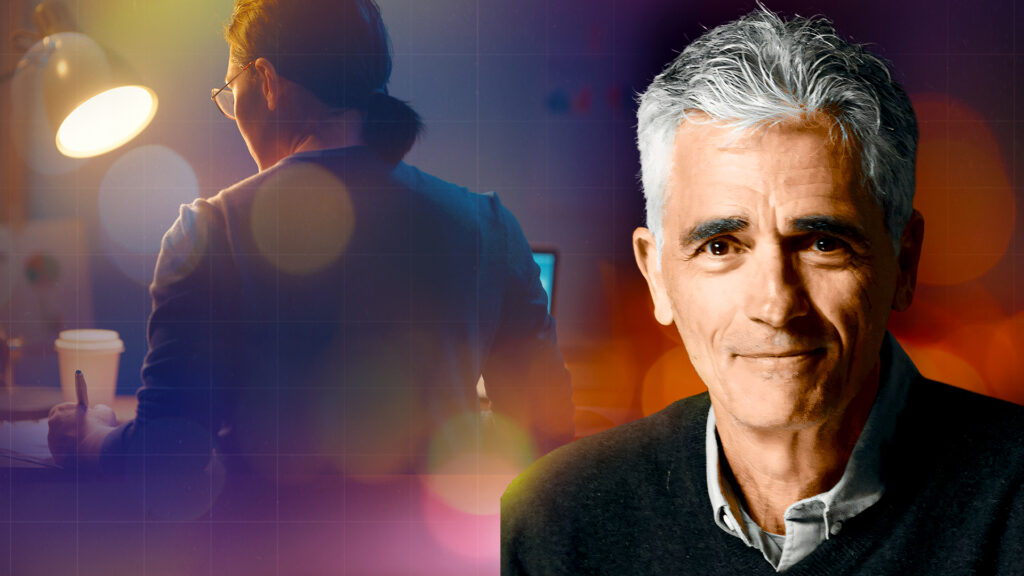
Keynote Speakers Who Tell Great Stories Get Booked More in 2026
Keynote speakers need more than craft to get booked. Learn the mindset shift that builds sustainable speaking careers.
Read More
Happiness at Work Is the Performance Strategy You Need, with Jessica Weiss
Happiness at work is a performance strategy, not a perk. Learn how Jessica Weiss helps teams build real, sustainable happiness.
Read More
Emotional Intelligence Skills That Hold Up Under Pressure
Emotional intelligence is more than a buzzword. Here's what real EQ looks like under pressure, and the keynote speaking voices building it on stages in 2026.
Read More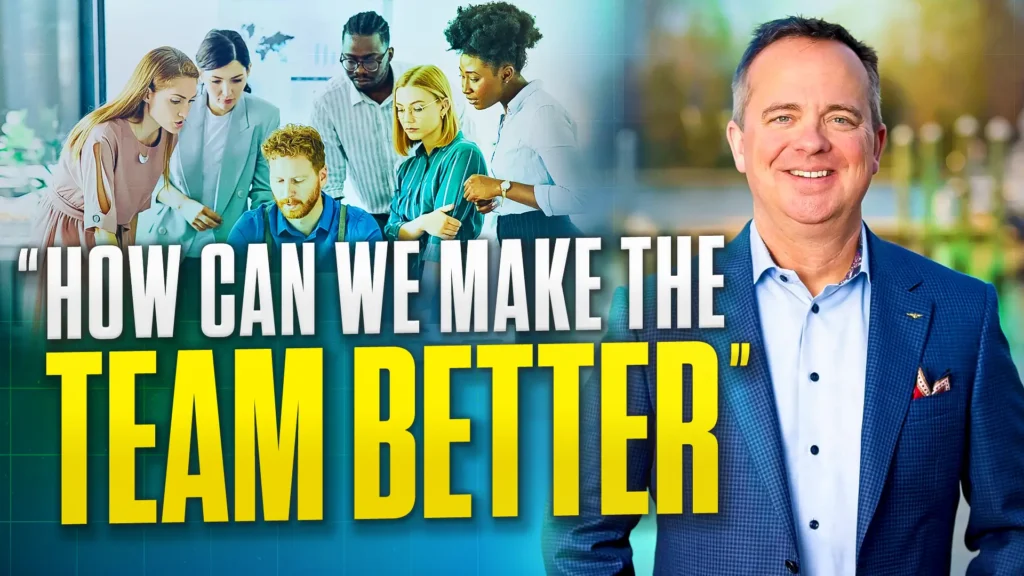
Confidence Without Vulnerability Creates Teams That Never Improve
Learn how confidence and vulnerability coexist in high-performing teams from decorated Navy fighter pilot Jack Becker's proven debrief strategies.
Read More
Optimism as a Strategy to Turn Setbacks into Triumphs, with Jess Ekstrom
Keynote speaker Jess Ekstrom reframes optimism as a strategy for resilience, success, and making it without burning out.
Read MoreRelated Innovation Speakers
Get in TouchContact US
Fill out the form so we can best understand your needs.
A representative from The Keynote Curators will reach out to you.


